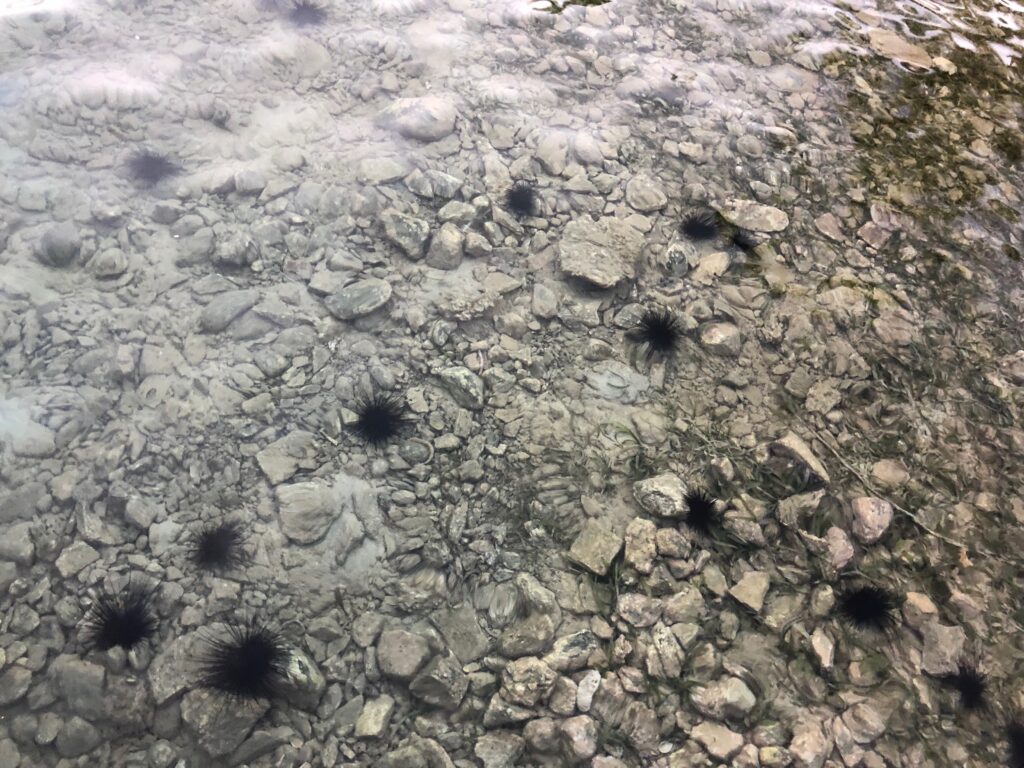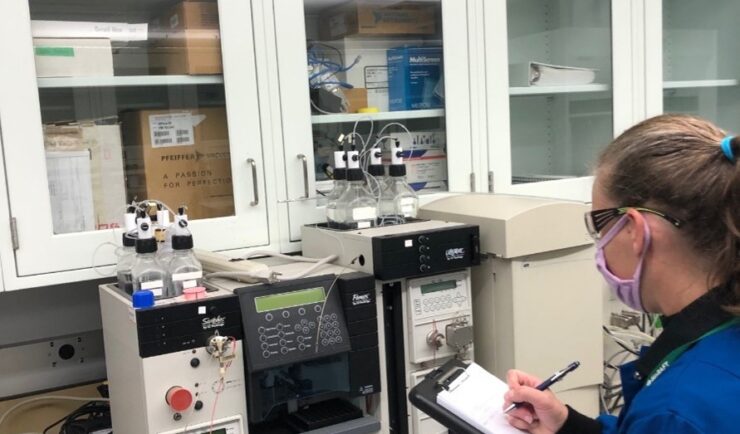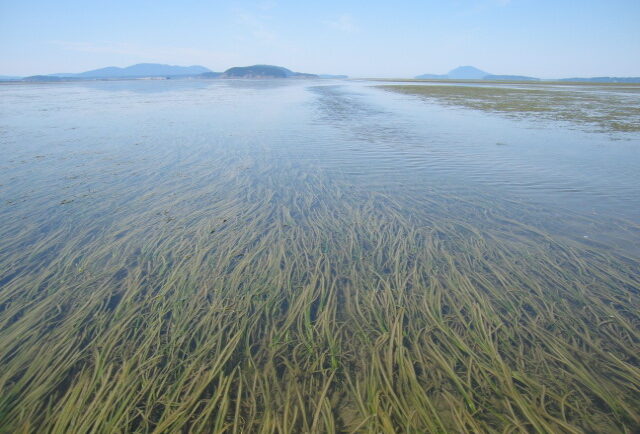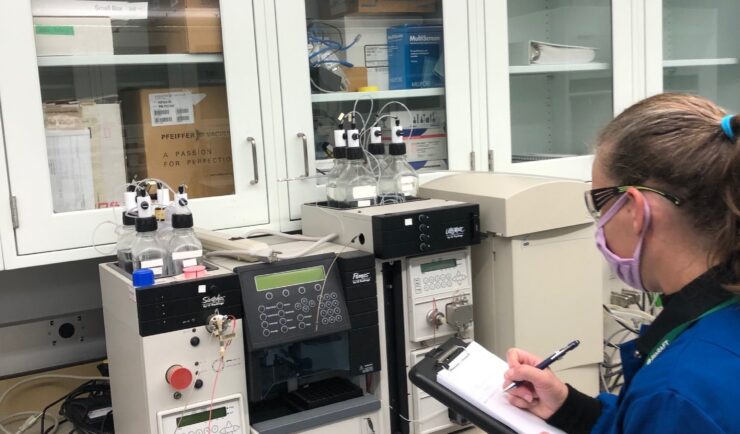

A diver collects a long-spined sea urchin. Credit: Blake Gardner
Our employee owners were recently part of a team of detectives on a mission to discover the killer of long-spined sea urchins, Diadema antillarumy, throughout the Caribbean Sea. The infected urchins lose their spines, leaving them more vulnerable to predation or dying after a few days. In 1983 the same species experienced mass mortality with identical symptoms, but scientists were unable to discover the culprit. Forty years later, the issue resurfaced, and a team of scientists joined forces to unlock the mystery.
CSS employee owners, supporting NOAA’s Coral Reef Conservation Program and NOAA’s Office for Coastal Management, joined a team of scientists in diving to collect urchin samples at 23 sites around the Caribbean Sea. By providing the samples, the researchers were then able to examine and test the urchins and compare them to healthy urchins to determine the cause of the mortality.
Due to this rapid response, scientists determined the cause of the issue within three months
Our staff coauthored this paper documenting the process. https://www.science.org/doi/10.1126/sciadv.adg3200

Researchers examine a long-spined sea urchin. Credit: Leslie Henderson
See More CSS Insights

Assessing Methylene Chloride Levels in Laboratories
CSS employee owners supporting the University of Kentucky have started sampling campus laboratories with high use of methylene chloride to assess levels of employee exposure. This effort is in response to the Environmental Protection Agency (EPA) issuing methylene chloride regulations under Section 6(a) of the Toxic Substance Control Act in the Federal Register on May…

World Seagrass Day!
Seagrasses are critical to coastal and ocean ecosystems, protecting coastlines from erosion, stabilizing ocean sediment, and improving water clarity. They provide food and shelter for aquatic life, including seahorses, turtles, thousands of species of fish, and more. In addition, they are amazing carbon sequesters, meaning they absorb atmospheric carbon reducing greenhouse gases. On World Seagrass Day, we…

Supporting Safety In Higher Education Laboratories
In the past two years we’ve expanded our safety portfolio to supporting colleges and universities, ensuring their laboratories meet industrial hygiene and safety standards. Our staff member leading the effort is a Certified Industrial Hygienist (CIH) and Certified Safety Professional (CSP), and member of the Remote Industrial Hygiene and Safety Support Team. Our short-term projects…
